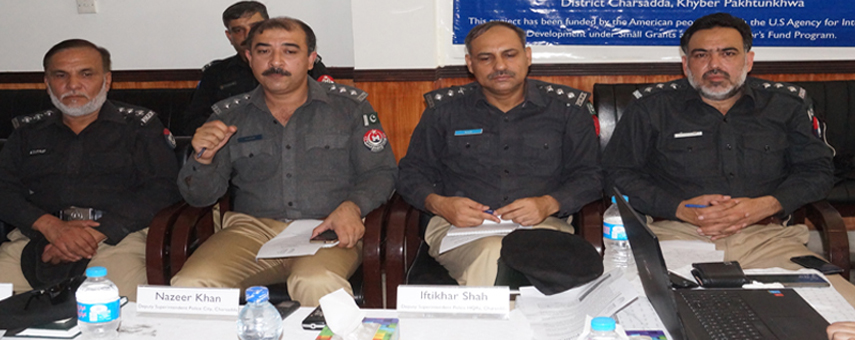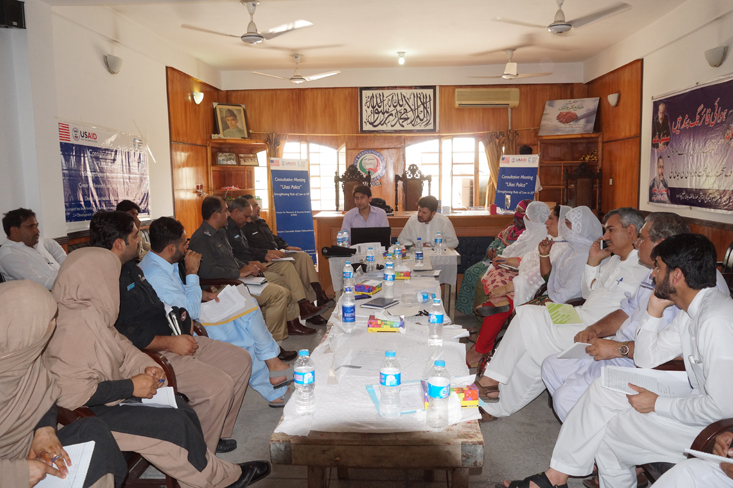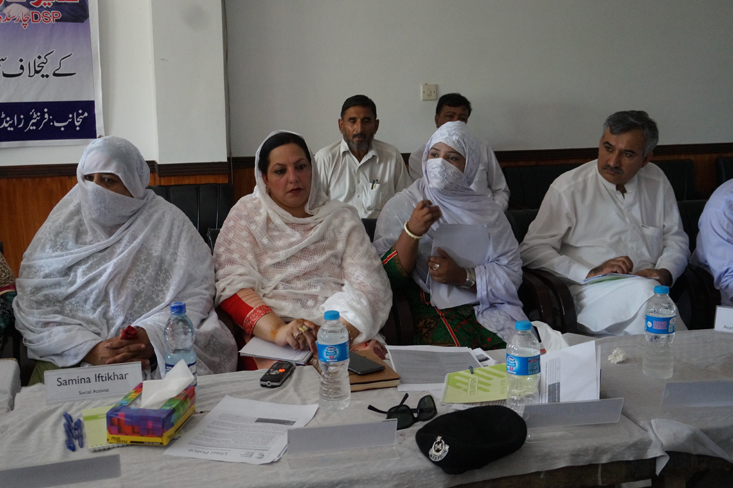The recent police reforms have been able to get some public attention but there is still a dire need to improve public awareness and establish partnerships between the two. The communities have a critical role to play in cooperation with police, to ensure a society free of crime, Nazir Khan, Deputy Superintendent Police, Charsadda spoke along with other police officials at the maiden consultative meeting of the working group on police reforms. The meeting in Charsadda was part of the project “Ulasi Police” an awareness and advocacy campaign undertaken by the Center for Research and Security Studies (CRSS) – as part of USAID Small Grants and Ambassadors’ Fund Program – to strengthen the rule of law in KP province by promoting and disseminating the significant police reforms aimed at incorporating local communities’ policing needs and international human rights standards. The endeavor aims to tackle the trust deficit between the public and police, help KP police become an accountable and community-focused police force.
The working group members of police included:
Mr. Iftikhar Shah, Deputy Superintendent Police HQRs, Charsadda, Mr. Nazeer Khan, Deputy Superintendent Police City, Charsadda, Mr. Sajjad Khan Deputy Superintendent Police Tanggi, Charsadda, Mr. Qaisar Khan, Inspector/ In charge SOS, Charsadda, Mr. Allama Iqbal Khan, Inspector, District Police Office, Charsadda, Mr. Imran Khan, Station House Officer/ Sub Inspector, Police Station Charsadda, Ms. Suriya Begum, Lady Constable, Police, District Charsadda, Ms. Uzma Khan, Lady Constable, Police, District Charsadda.
The police officials as part of the working group informed that a number of reforms have been included in Khyber Pukhtunkhwa Police which are incorporating the public needs and tackling their issues with community policing and modern tools at the core. Police Access Service (PAS) has been quite instrumental so far in providing speedy justice to the citizens. The service offers different ways of filing a complaint with the police where the incoming messages are received through several mediums of communication.
The working group members from the community included:
Ms. Afsar Banu, Female Rights Activist/Local Government Representative, Mr. Muhammad Nazif Khan, Academia Member/Educationist, Shah Raza Shah, Senior Journalist, Mr. Liaqat Khan, Advocate, Local Courts Charsadda, Ms. Shaheen Sultan, Political and Social Activist, Charsadda, Ms. Gulshan Arra, Minorities Councilor, District Charsadda, Mr. Usman Khan, Political and Social Activist Charsadda, Ms. Samina Iftikhar, Social Activist.
All the community members unanimously endorsed the need to increase awareness among the public about these reforms taken by the KP police, and increase and establish public-police interactions and linkages respectively. They said that they were not informed about most of the work – shared with them during the discussion – that the KP police had been doing to benefit the commoners. So educating the communities at large – for reforms and their roles – is crucial for tackling the trust deficit. They said that all these reforms are the positive initiatives but there was a dire need to do more given the influx of public needs and expectations from the police.



